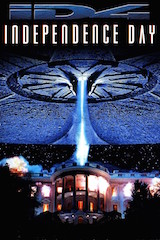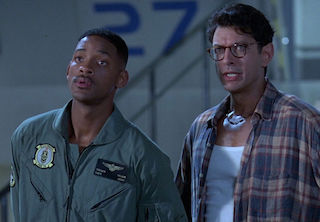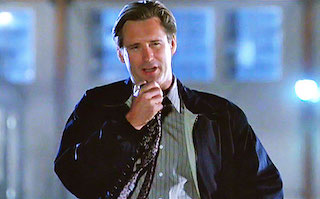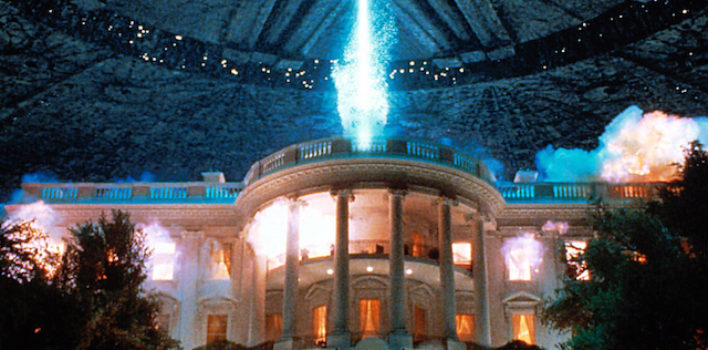Redemption and Restoration in Independence Day
 Abraham Lincoln once said, “The probability that we may fail in the struggle ought not to deter us from the support of a cause we believe to be just.” A man who was known to have failed multiple times in his life—although often his great successes during that time period are downplayed for the sake of inspiration today—the 16th President of the United States became one of the most important men in United States history in spite of these major setbacks. Success in spite of failure was a hallmark of Lincoln’s life and his presidency and came to define a major virtue of the American psyche as Lincoln’s story became a part of America’s story.
Abraham Lincoln once said, “The probability that we may fail in the struggle ought not to deter us from the support of a cause we believe to be just.” A man who was known to have failed multiple times in his life—although often his great successes during that time period are downplayed for the sake of inspiration today—the 16th President of the United States became one of the most important men in United States history in spite of these major setbacks. Success in spite of failure was a hallmark of Lincoln’s life and his presidency and came to define a major virtue of the American psyche as Lincoln’s story became a part of America’s story.
Keying in on this virtue, failure is the main tension of Roland Emmerich’s 1996 blockbuster smash, Independence Day. Following three major characters through its 145-minute runtime, each man in the story has failed in some way and is given the opportunity to seek redemption, by way of invading aliens bent on eradicating human life from planet Earth.
David, played by Jeff Goldblum, is a classic underachiever. Graduating from MIT and possessing an incredible intellect, has spent most of his career as a satellite technician for a cable TV company. He also has failed in his marriage and at the time of the movie has been divorced for three years. Both in his intellectual potential and in his most important relationship, David is a failure.
Likewise, Steven Hiller, played by Will Smith, is also failing in his most critical relationship. He is living with Jasmine, his girlfriend, and her son Dylan, but is not married to Jasmine nor is he Dylan’s father. He’s committed to his successful career as an Air Force pilot but leaves Jasmine often to be on base. Despite the urging of his best friend and fellow pilot, Jimmy, he hasn’t gotten around to committing to Jasmine and her young son and “popped the question.”
 Arguably the most successful of the bunch, and yet the biggest failure, is former Air Force pilot and current leader of The United States, President Thomas J. Whitmore. Maligned by the media and politicians for being inexperienced and indecisive, Whitmore starts the movie in embattled position. Even those closest to him; such as Whitmore’s Communications Director and David’s ex-wife Constance and Secretary of Defense Nimzicki, are suspect of his decision-making at critical junctures.
Arguably the most successful of the bunch, and yet the biggest failure, is former Air Force pilot and current leader of The United States, President Thomas J. Whitmore. Maligned by the media and politicians for being inexperienced and indecisive, Whitmore starts the movie in embattled position. Even those closest to him; such as Whitmore’s Communications Director and David’s ex-wife Constance and Secretary of Defense Nimzicki, are suspect of his decision-making at critical junctures.
When the aliens arrive and begin their destruction, our three main characters’ slates are wiped clean in a blue-green blast of lasers. David’s office is destroyed and his findings compel him to track down Constance in Washington D.C. President Whitmore, in the movie’s most iconic scene, has the landmark of his indecisive leadership blown to smithereens when the White House is destroyed. Likewise, Steven’s career is decimated when his squadron is routed and his air base leveled. All three men have had what defined their failures eliminated and paves the way for them to recreate what has been broken into something new.
David and Steven’s stories converge in the final third when David finds a way to defeat the alien invaders and Steven offers to pilot the captured alien spacecraft to enact David’s plan. Steven’s redemption is righting the wrong of failing to commit to Jasmine in the face of death. David’s is living up to his potential and using his God-given ability for the good of mankind. Say what you will about the validity or motivations for their redemption, both of them have radically shifted who they are and restored what was broken; both their relationships and their lives.
Whitmore’s redemption is possibly the most poignant because of his string of failures. The destruction of Washington D.C. becomes his chance to move from indecisive failure to confident Commander-in-Chief and leader. By the time the final acts rolls around, Whitmore has intentionally nuked a US city to try to defeat the aliens, parlay with the aliens to establish peaceful relations, and tried to dialogue with one of them to find out their motives. All three attempts fail miserably and he remains a hapless failure in the eyes of the audience and those under his charge.
 “Too much politics and too much compromise,” laments Connie early in the movie of Whitmore’s time in office. “Age was never an issue when you stuck to your guns.” “They elected a warrior, but got a wimp,” says a newscaster in the opening moments. But now, with politics literally wiped off the map, the warrior is able to decisively lead once again. Defeating the aliens is Whitmore’s return to primacy and a chance to find redemption in rediscovering the roots of his leadership. He gives a rousing speech, dons a flight suit, and leads the final attack against the aliens ships. While his actual contribution to the defeat is not nearly as important as David and Steven’s, he has restored his ability to lead and reestablished himself as the confident leader of the free world.
“Too much politics and too much compromise,” laments Connie early in the movie of Whitmore’s time in office. “Age was never an issue when you stuck to your guns.” “They elected a warrior, but got a wimp,” says a newscaster in the opening moments. But now, with politics literally wiped off the map, the warrior is able to decisively lead once again. Defeating the aliens is Whitmore’s return to primacy and a chance to find redemption in rediscovering the roots of his leadership. He gives a rousing speech, dons a flight suit, and leads the final attack against the aliens ships. While his actual contribution to the defeat is not nearly as important as David and Steven’s, he has restored his ability to lead and reestablished himself as the confident leader of the free world.
The story of all three men exemplifies there is no one living right, not even one, and recalls the story of countless people, like Abraham Lincoln, who have failed miserably, but still achieved great things. They are echoes of the Bible, a book full of heroes who are redeemed by God and have their fortunes restored in the midst of failure. King David, one of the greatest and most powerful men to ever live, fails horribly on multiple occasions and others pay for his sins against God. Samson, a Herculean-like man of strength, forsakes God for a foreign woman, yet is redeemed to rescue God’s people. It recalls the greatest story and the One True hero who endured a seemingly tragic failure of dying a horrible death but was really a triumph to redeem all people and promise a restoration of all things. Independence Day is but a shadow of that story and reminds us heroism and redemption are found in the ashes of failure.







